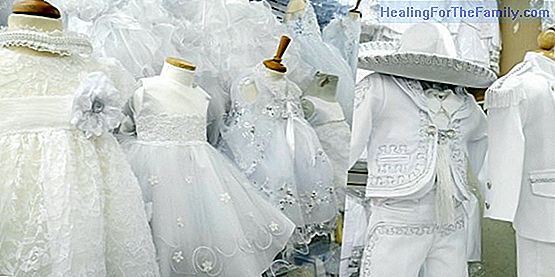What values are and why they are basic to educate children
Values can be defined as the characteristics that people possess and that help them to function better in the environment in which they find themselves. Therefore, children must learn to value behaviors and behaviors to feel good about themselves and others. In this way, they will be able to under
Values can be defined as the characteristics that people possess and that help them to function better in the environment in which they find themselves.
Therefore, children must learn to value behaviors and behaviors to feel good about themselves and others. In this way, they will be able to understand and act around them in a tolerant way and it will be more pleasant. But, how to educate children in values?
Educate children in values

When children are born, they are not "good" or "bad", the environment in which they find themselves is the one that guides them. Together with his personality and the values that are transmitted from his surroundings, he learns the difference between right and wrong.
Values are important at any stage of a child's life. It is important to educate children in them from an early age because they are very important in making decisions that affect both the individual and the people around him.
- Since they are born. Through small acts children perceive what is right and what should not be done.
- After 3 years. They are able to see in other children what they do wrong and what they do well. For example, "Juan is bad because he bites."
- After 5 years. Children tend to look at adults as "the right example." They try to be like them. In this way you will learn many values.
What values are
Values vary according to cultures, families or people. There are different types: Family values, sociocultural, personal, spiritual, material, ethical and moral.
Focusing on the education of children we will put the focus on family values, as they will be the first ones that children will learn. Each family tries to inculcate those that it considers most important so that the child can develop in society and live in harmony with others.
This type of values have to do with the personal values of the parents, and if they know how to transmit them with patience, love and sensitivity, they can be a good base in which to support, accept or reject other experiences, attitudes and behaviors with which the children will be found throughout their lives.
How to transmit values to children
The acquisition of positive values depends on the child's personality, feeling loved and safe, the type of attachment with the adults around him and the confidence that the child has in himself. The responsibility of transmitting these values to children belongs to the parents. The values are not taught independently of the rest of things, nor "giving the talk". It is done through practical example, through the day to day and the observation of children. To do so, we give you some tips to educate children in values:
- Be guides. Parents have to point out the way to follow children because when they are very young it is not clear to them what is right and what is not allowed to be carried away by emotions.
- Teach different values and their meaning. The most appropriate way to teach them values is to tell them what they mean and give examples of them.
- Give support. It is necessary for children to trust adults. Thus, when they do not know how to react to a situation, they go with confidence in adults to receive help.
- Put aside the screams and threats to teach values.
- The teaching of values should be continuous, so that they learn them on a day-to-day basis.
- Stories and stories are a good tool to teach values clearly through their characters.
- Lead by example. For example, teaching the child to be respectful and speaking to him through threats and punishments will not be the right path.












